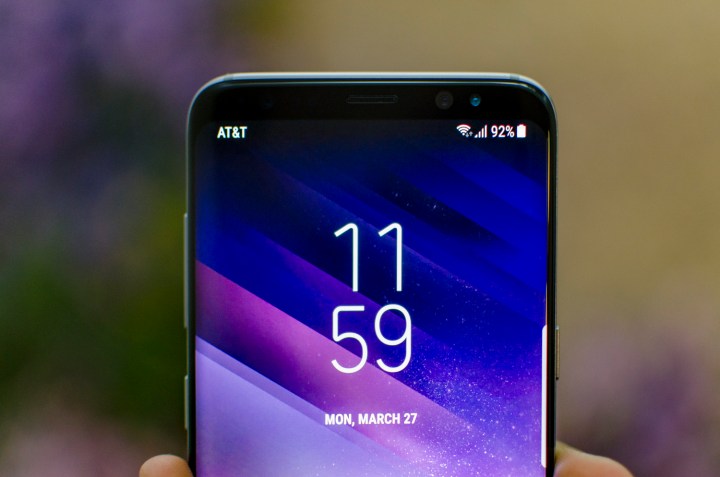
In its report, DisplayMate calls the new Samsung flagship’s 5.8-inch AMOLED screen the “most innovative and high performance” the company has ever lab tested and was particularly impressed by the device’s color accuracy and a wider spectrum of colors. The analysts found that the S8’s display could reproduce 113 percent of DCI-P3 and 142 percent of sRGB / Rec.709 color gamuts. Coupled with the Mobile HDR Premium certification, it reportedly outperforms the S7’s screen by almost every measure, but especially when used in high ambient light conditions or for watching 4K UHD content.
DisplayMate also notes the sub-pixel rendering technique Samsung used on the 2,960 x 1,440 panel makes the display look significantly sharper. As explained in the report, sub-pixel rendering treats each component of a pixel — the red, green, and blue elements — as independent, rather than constrained in the same cluster. This results in images that can appear to have up to triple the resolution of whatever the screen is rated at. Bear in mind, the S8 already packs 570 pixels per inch.
The S8 set several records in DisplayMate’s testing, the most notable being a peak brightness of 1,020 nits — 17 percent brighter than the S7 — which the report claims are necessary for viewing HDR content as intended. But even when using the phone under normal conditions, the improved viewing angles and automatic brightness setting offered by the S8’s front and back dual ambient light sensors should result in a better experience. The rear sensor measures the light behind the device that you typically see in the periphery, making it a more accurate measure of surrounding conditions to adjust the display.
What makes these improvements even more remarkable is that Samsung apparently didn’t increase the power going to the display with the S8. In other words, the phone is accomplishing all of these enhancements — higher brightness, wider color gamut, and improved sharpness — while sapping the same energy as 2016’s model. As impressed as we were with the S8’s screen when we had some hands-on time with it at Samsung’s Unpacked event, the hard data helps put things into perspective.


